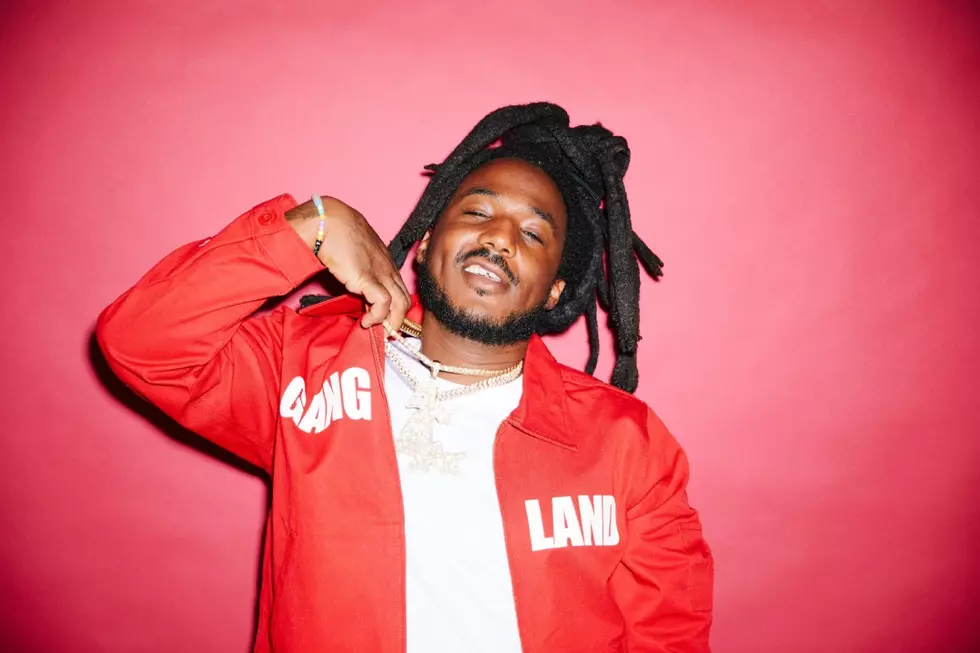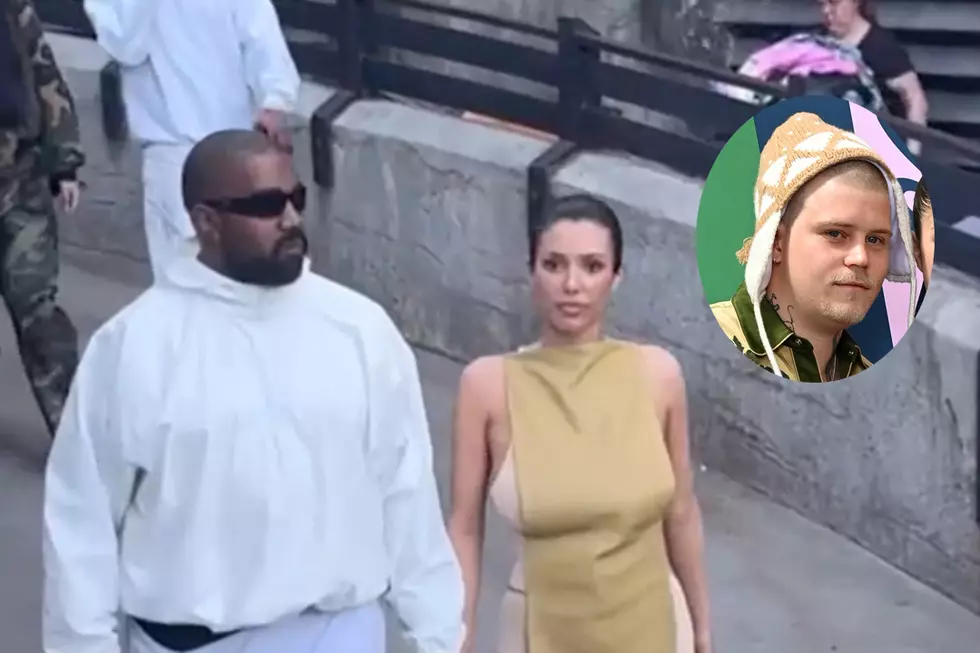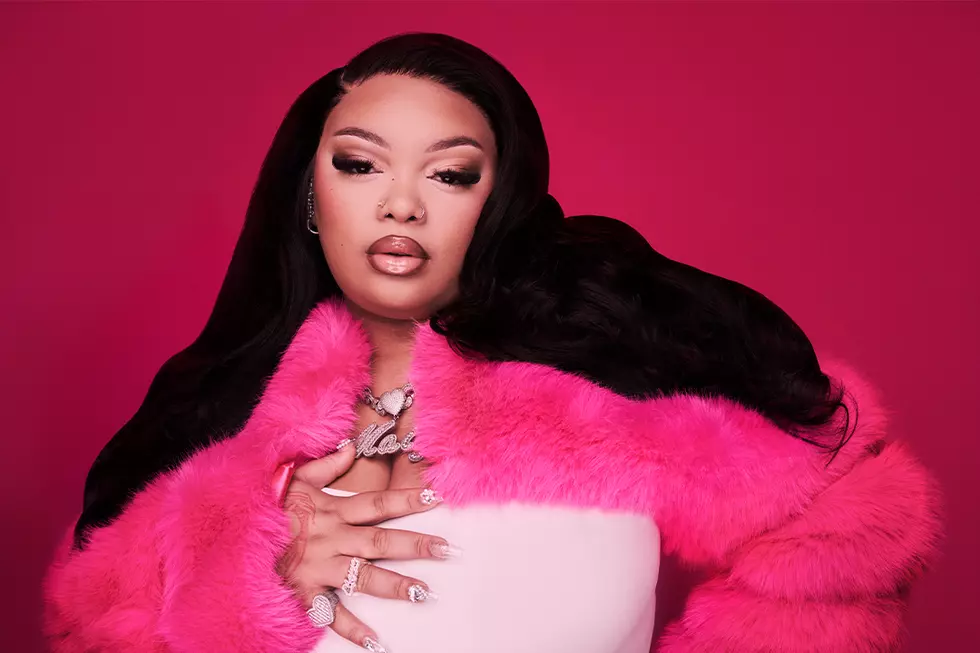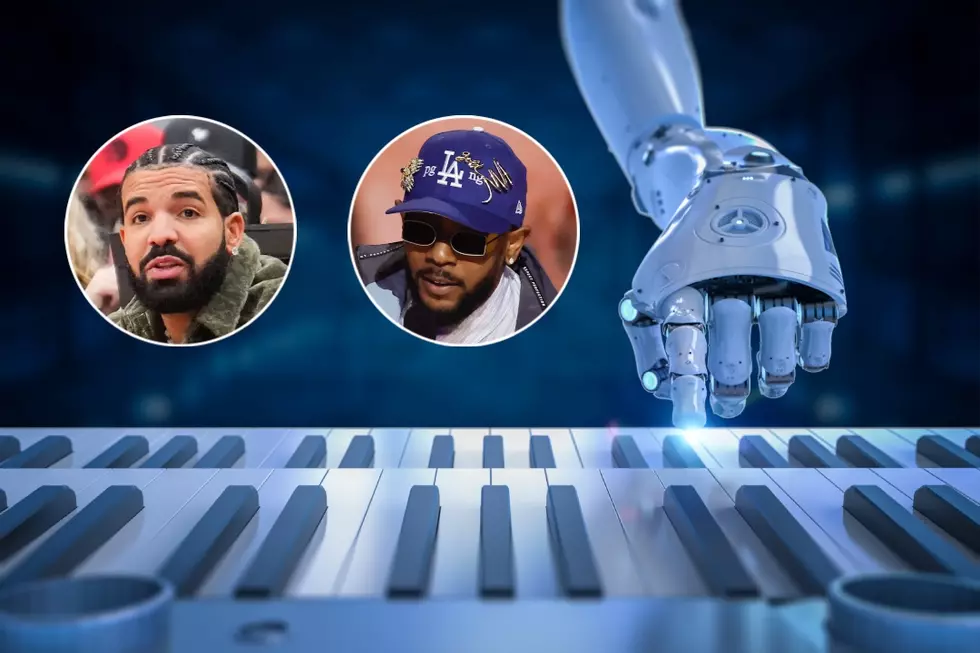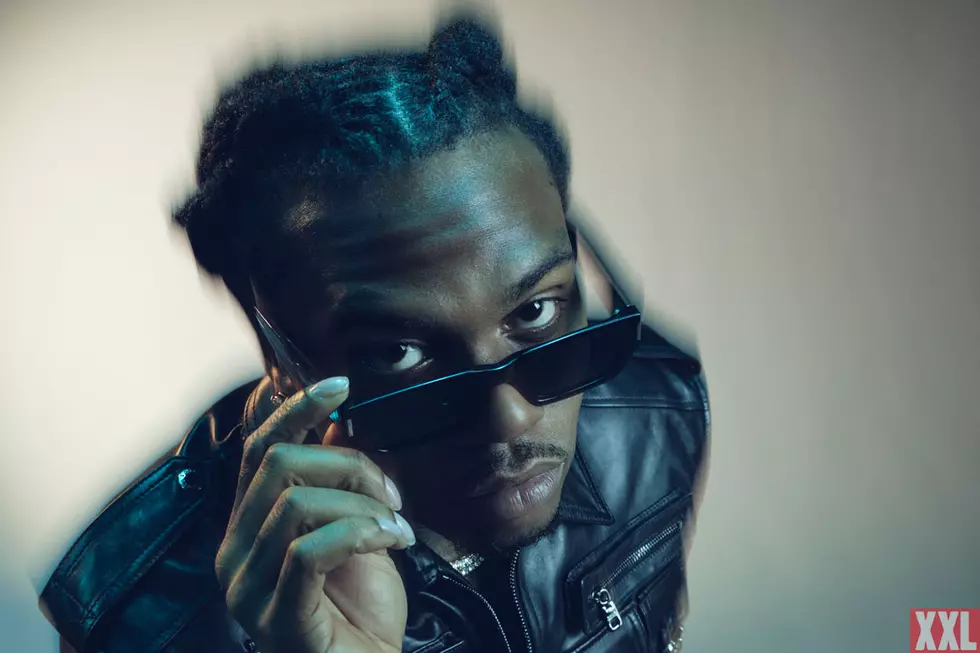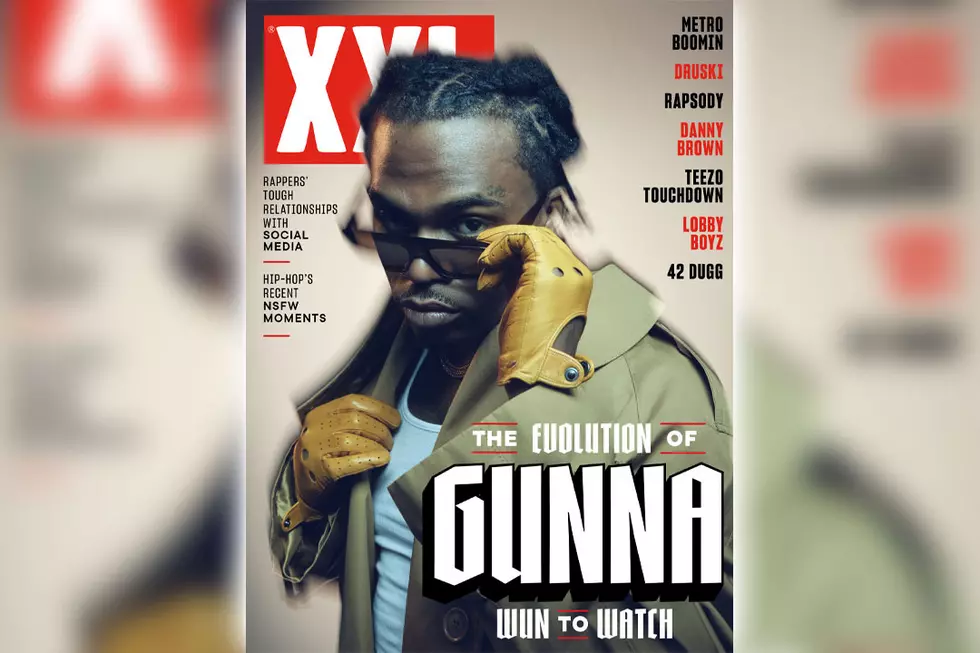
Lecrae Explains Why He’s Unashamed to Share His Past in New Book
Lecrae is truly an anomaly. In today's hip-hop scene, being openly religious doesn't usually resonate commercially. However, the Houston native is sticking to what works best for him and staying true to his faith as helped him become one of the most popular artists in the genre. To simply label him a "Christian rapper "is way too hasty and ill-informed. Lecrae is much more than that -- don't keep him boxed in. The 36-year-old MC doesn't want to teach listeners the Bible, rather all he's doing is expressing himself through the lens that he sees things. It just so happens that he's a man of faith.
"When you hear that term 'Christian rap,' two things comes to mind," he told XXL in 2014 "One: It’s only for Christians, so [you hear], 'Oh, that’s not me, I’m Muslim or agnostic.' And then two: It’s corny or it’s wack. You probably heard some song in the past that turned you off, and that’s not fair. That’s like my friends who don’t listen to hip-hop at all. They’ll hear one song on the radio one day and say, 'I hate rap,' when there’s way more stuff out there that’s not being played on the radio. When you look at myself, my team -- when you listen to me, Andy Mineo, Trip, you hear quality music. We’re not trying to rap The Bible to you."
That same year, Lecrae released Anomaly, his seventh studio album, and it debuted at No. 1 on the Billboard 200, becoming the first album to simultaneously top both the Billboard 200 and the Gospel Albums chart. Lecrae would receive three Grammy nominations for the project and earn one for Best Contemporary Christian Music Performance/Song for "Messengers" featuring For King & Country. He also previously won a Grammy in 2013 for Best Gospel Album for Gravity.
Since then, the Reach Records co-founder has been moving on up. He released his third mixtape, Church Clothes 3, earlier this year and most recently wrote a book titled Unashamed, out now. In the book, Lecrae is as open as ever, discussing his childhood abuse, drugs and alcoholism, a stint in rehab, abortion and an unsuccessful suicide attempt. While in New York, Lecrae chopped it up with XXL about how the book came together, if he's worried about criticism and when can we expect new music.
This is Lecrae as open as he's ever been before.
XXL: In the book you’re very open about your past. That’s something not typical with most rappers these days. Why write this book now?
Lecrae: I think it was important for me to write the book now because I’m at the peak of people’s expectations. Coming off a No. 1 album, a Grammy win, all in the entertainment industry and it's kind of like, that’s not the time to tell all your business. I wanted to kinda be counter-cultural and just be like, “Yo, I don’t have nothing to hide, I’m just going to just put it all out there.” And I felt like if the world is watching let me say something that matters. That’s how I look at it.
Do you feel that’s your responsibility?
For me yeah, I think there’s such a void, specifically in hip-hop. Hip-hop is substance, it’s social, it’s science, that’s what it started off as. We have fun and we still having fun, ain’t nothing wrong with fun, but we need that social, we need that substance, we need that science and we need that spiritual. So for me it’s really soul music. I felt like, man, I want to make soul music and the book is just an extension of that.
Writing a book, like music, is very concrete. Once it’s out, there’s no retraction. Was it hard for you to talk about yourself and put this out to basically complete strangers? What were the beginning stages like for you when you were creating this?
So my training ground is really having close friends for years who I’ve been in all kinds of crazy stuff [with]. I got a loyal group of people who been riding with me through it all. That was my training ground, to be around them and to be honest with them and they hold me down. So it’s a situation where it’s like, I think every lead is going to lead out to vulnerability and if you’re vulnerable then you realize this is somebody I can trust. And then they feel like, let me share some stuff.
You have this relationship and it becomes a family unit. I’ve seen my family strengthen based off the vulnerability that happens. And I think we all really want it, we wanted it from our fathers, we wanted it from our moms, and we wanted our moms to tell us how she really felt. Some stuff you don’t get to hear until you get older and you like, “Oh, word, you got another son somewhere?” you know what I mean? But that authenticity, that rawness makes you appreciate it more. Like, man you’re really with me. I’m healed now. I wouldn’t say I’m fully all together but most of my wounds turned into scars and I’m just showing off my scars because when people see your scars they say, "Maybe my wounds can heal if your wounds did."
What made you even think writing a book should be the next thing to do after the album? Why not music?
So, it’s two things. I feel like, I remember growing up loving Public Enemy as a little kid and when I got older, Chuck D wrote a book and I remember him saying stuff that I would of never got from the music. It was way more, bigger, it was thicker and it was more robust. My mom was big on education, big on reading, so she was always pushing books on me; The Autobiography of Malcolm X, like read these books. And it was like, man, I’m learning stuff that I just can’t get anywhere else.
They always used to tell me that they hide information in books. So for me, it was making these songs and people hearing these songs and saying what was the story behind that, give us more and just intrigue and interested. So for me, the book was that. Let me put something out. Plus I think its important for African Americans, for Black people to write and to establish history and establish written... 'cause most of our tradition and history is oral. It isn’t documented. So I think it’s important as things happen, document it and write it down so that they last forever.
Scars aren’t something people like to show; you usually cover them up and hope they heal until it becomes unnoticeable. You’re doing the opposite and displaying them. Are you worried of how you’re going to be criticized?
That’s why I called the book Unashamed. It’s a lot of stuff that I’m not ashamed of because this is who I am and I’ve gone through all these stuff. If I hold up a $100 bill in front of you and ask you how much is it worth, you’ll say a $100. If I crumble it up, it’s still worth a $100. If I spit on it and say this money ain’t worth nothing, it’s still a $100. So there’s nothing you can say to me, nothing you can do to me, nothing I can be exposed to that’s going to take away my worth. I know I’m wonderfully made and nobody can take that away from me. So regardless of what I show you or expose to you, you don’t have any bearing on my worth and what I mean. There are a lot of people that need that freedom or need that liberation.
Was there a part in the book that you wrote that was difficult to relive or rethink again?
Yeah, one is just rehashing being molested as a kid, as a 6-year-old. Having the babysitter molest me. Not so much for me to live back through but to have her stuff out there like that too. You know this is somebody that I still know ‘til this day. We haven’t even had a convo about it but it’s right here [points to head]. It’s been affecting me my whole life, it’s been impacting me. She knows that.
Talking about some of the male figures in my life that kind of lead me down the wrong path but I still love them. I don’t know how they will receive it because we’re not in contact. My father, I don’t know where he’s at but if he reads it he’s going to know this is what your absence did to me.
Oh wow, wait. You’re still in contact with the woman who molested you when you were a kid and y’all haven’t talked about it yet?
I haven’t talked to her because she was such an intricate connection to our family and I think a lot of times, specifically Black communities, we bury stuff, so it’s like your situation and your stories always seemed to be lesser or not a big deal. So for a long time I didn’t think it was that big of a deal and it really wasn’t until I got older did I realize the type of affect it had on me. But it doesn’t bother me now because I’m free. I feel like I’m past it. So it’s like, what am I going to say to you. I don’t really have anything to say except I forgive you. I forgive you, it’s all good, I’m not trippin’. She knows that just based on our interactions.
Some of the stuff in the book was new to me and I’m a fan. It was alarming. What are other things when fans read the book that they will learn?
Obviously, because I’m an outspoken Christian, I have no problem admitting that, even though I don’t like being placed in a genre, so to speak, but as far as I’m concerned I don’t have a problem talking about that. But one, people have this preconceived idea, Christian dude, you must be whatever your experience has been like. But really that’s when you find out you really don’t have any perspective on where I’m coming from.
So I think people would say, "Addiction, rehab, I couldn’t look at you now and know that was ever you." That’s just God because there is no good reason for me to be walking the good path I’m walking now and living like I’m living now based on where I cam form and what I experience. That’s the only thing I can say. There’s a lot of stuff you probably didn’t know but hopefully helps people say, “Man.”
I always tell the story, when I was in high school I was working at the grocery store pushing carts and I was pushing them. I was supposed to push them but I start riding them. I got to riding the cart and the cart flipped over and ripped my fingernail out of my finger. I’m freaking out, I’m bleeding everywhere, I wrap my finger up and don’t even look at it. I go in the building and be like, “Aye, I need help, call somebody, do something.” Then the butcher comes over and says, “Let me take a look at it.” I’m like, “Check it out” and he’s like, “Man you be good, look at me.” That helped me, him showing me, it gave me perspective like, I’m going to be fine. If he’s good, then I’m good. That’s what I want to do for people. To make them say, “Oh word, that happened to you? Well, you look good now so I guess I will be too.”
When did you start writing the book?
It took a good six months. A lot of it was, what’s funny is, and I put a lot of the entries in here. When I used to write songs I would also just write down the experiences and what I was going through to inspire the music. It was like journal entries. A lot of it was already written down and it was just rehashing it and putting into a story format. Some of these stuff I’ve been working on since I was a teenager. It’s really journal entries and real songs. Some of it is just stories that I would tell over and over again that I was just like lets just put it on paper. So it didn’t take long. It was just a six months process of getting the information. After that it was the editing and making it right. It was a process.
Where do you even start off writing a book?
I think one is having the confidence in knowing who you are. Like who are you and are you okay with that? That’s how my stories are a lot of bought, who are you? It’s about integrity and authenticity and if you’re comfortable being you then you’re going to be alright. You can start writing; you can start affecting change and really getting after it. But when you don’t really know who you are and you maneuver and mold, no one can really grasp a hold on where you’re going cause you don’t know where you’re going. I love Lauryn Hill when she first came out with her solo project because it felt like she just knew what she was doing. Like man, I’m just going to say it, this is where I’m at, this is who I am this is how I feel, done. And that’s dope. I can follow that, I can learn form that. And when you’re all over it’s going to be harder for you to impact.
You had a couple of successful years -- album goes No. 1, a Grammy. What has it been like since that and how do you top that?
It’s dope to a certain extent but my personal philosophy is that success is not what you do compared to other people, success is what you do compared to what you were made to do. So if I’m comparing myself to people, I'll never be satisfied. If I compared myself to little Joe Schmo who got 72 SoundCloud followers then I’m killing it. But if I’m comparing myself to Beyonce, I got a long way to go. So for me it’s just really trying to live in the moment, focus on what you doing and keep doing what you’re doing well. It felt great but I’m not really the type of person that sits in it and just revel in it. I’m like aight, what else we got to do, let's keep moving.
Have things changed?
A little bit. Entertainment industry is kind of like high school. I even write about that. It’s like you can’t sit at the cool kids table now but you can come stand over here, you know. Things changed a little bit but do you care? That’s what it comes down to it. Some people may answer your calls and it may be a little easier to access certain people but do you care? I came into this thing with good friends and good people. I met some new people and some people respect what I do that I never would of imagined. But yeah, some things have changed for the better. I mean, I got invited to Prince’s house last year, that was big. I didn’t even know I was on his radar. Stuff like that is mind-blowing. But in terms of like some of the commercial success, to me that’s an extension of what I’m trying to do. Shift the culture and if you win an award for that, cool. I’m grateful.
So what music are you working on? It’s been a couple of years.
Man, I’m trying to come with it. I feel like now, people will actually pay attention, people will actually like check for something. Even if they aren’t a fan, they’re like, “Let me see what this dude talking about.” I’m excited to really make something potent, to really make some good music. Kanye opened up the door for people to be really transparent. You’re not a gangsta, it's cool, wear your pink Polo and rap about it. Drake continued on with it. Kendrick is like, yo, I’m not making music for the stereotypical consumer, I’m making what I want to make and to who needs to hear it. So I think it’s a lot of room to say what you want to say and make a real statement.
Rough estimate, when will you drop a project or single?
You probably hear a single definitely before the end of the year. As far as an album is concerned, I’m 'bout to go underground. I’m just working. I’ve been working with a lot of great dudes. I’ve been working with Vinylz, working with Hit-Boy and it’s been real good. Just catch a vibe and make something really, really dope.
See 50 Great Albums From Rappers With Poetic Flows
More From XXL

